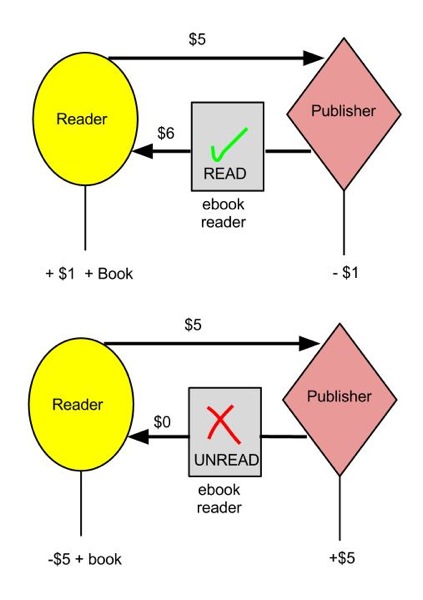I am and I think I will forever be anti E-books. In my first portfolio I argued that copyright is not doing it’s job of protecting original works by allowing E-books to be around. Although it is protecting the content of works, it lacks to protect the formatting, feel, and experience of reading a book. In her book, The Book: The Life Story of a Technology, Nicole Howard wrote, “printed books are the product of a press, but long before the type is set, it is the author’s vision and voice that makes possible a book’s existence.” To me, it is important that such vision and voice are protected in addition to just protecting the content. And with E-books, I do not think it is possible to have such protected.
On a different note, having never used a kindle before, I was appalled to find out that on certain kindles there are adds that pop up in the middle of reading. I think that that is absolutely ridiculous. How can you possible stay on track and indulged in a book, when there are adds popping up all over the place. The experience can’t possibly be the same as reading from a regular book. And that isn’t fair to the reader or to the author who wrote the work.
